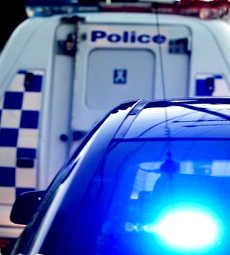Vic. to ditch drunken law
 Victoria says it will decriminalise being intoxicated in public.
Victoria says it will decriminalise being intoxicated in public.
The Victorian Government pledged in 2019 to repeal public drunkenness laws, which are often used to prosecute Indigenous people and those sleeping rough.
The decision was made around the time of a coronial inquest into the death of Yorta Yorta woman Tanya Day, who was arrested on public drunkenness charges, in police custody.
The coroner found Ms Day’s death was preventable, and that Victoria Police should have taken her to hospital or sought medical advice, but instead arrested her for being drunk in a public place when she had fallen asleep on a train while intoxicated. She hit her head several times in a holding cell while unattended and died in hospital from a brain haemorrhage about three weeks later.
After some delays, the state is now moving ahead with decriminalisation reforms and the implementation of a public healthcare model to give people who are intoxicated in public the support they need.
A statement on behalf of Ms Day’s family describes the law reforms as “long overdue”.
“As our mother’s case shows, police cells are dangerous places for those intoxicated, especially our Aboriginal and Torres Strait Islander communities,” the Day family said.
“No person should ever be locked up just for being drunk in public, and there should be no role for police or police cells in a public health response.”
The Victorian Aboriginal Legal Service (VALS) has welcomed the announcement.
“VALS data shows that 30-40 Aboriginal people a month are being arrested by police in Victoria. Every Aboriginal person who is arrested for public intoxication is being unnecessarily harmed,” VALS CEO Nerita Waight said this week.
“In other Australian jurisdictions where police maintain detention powers for public intoxication, despite de-criminalisation of this offence, Aboriginal people continue to be locked up and die in custody. Victoria will be the first jurisdiction to choose another path.”
The state’s Police Association had argued it would be “negligent and reckless” to decriminalise public drunkenness without putting in other laws and police powers to “keep people safe”.
The state government has confirmed that it will not give police any new powers to arrest people for being drunk in public once the existing offence is decriminalised in November 2023.
Additionally, it will create new sobering-up centres with associated transport teams.
Victoria’s attorney general, Jaclyn Symes, says the changes are not “perfect”, but should provide the “best outcome for the most amount of people”.
“The main reason to decriminalise public intoxication is to ensure that people who are drunk aren’t sobering up in police cells,” she said.
“We know that there’s a disproportionate impact on our Aboriginal community.
“We have Aboriginal people who are arrested for the sole offence of being drunk in public and that is causing immense trauma and in some instances we know has resulted in people dying.”








 Print
Print